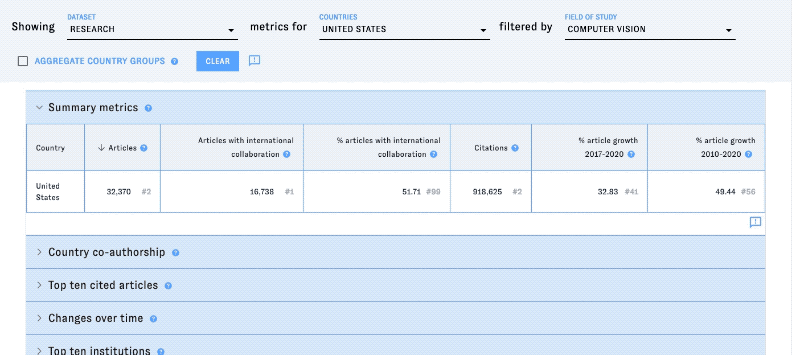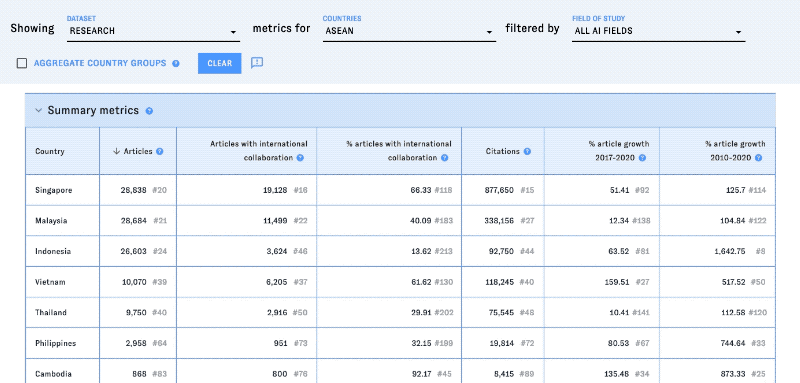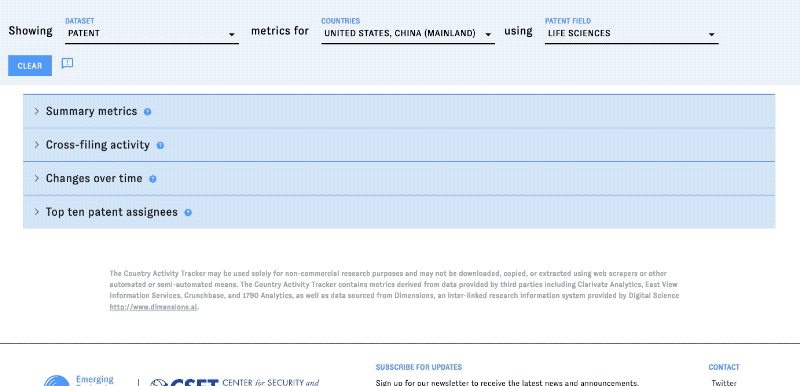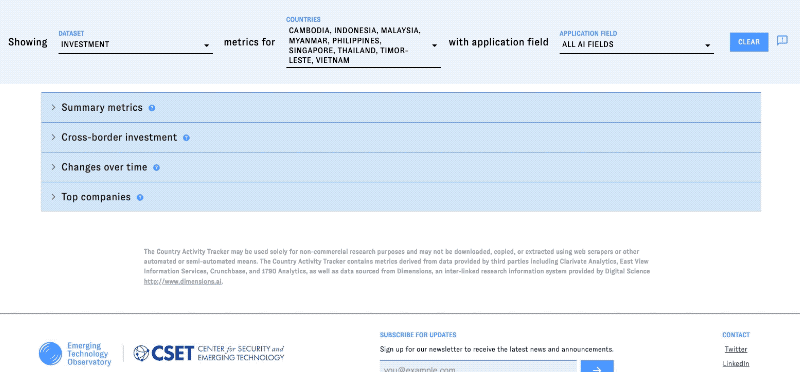Our Country Activity Tracker, developed in partnership with CSET’s data and analysis teams, is an easy-to-use dashboard for tracking and comparing AI-related activity around the globe. In this blog post, we’ll show off CAT’s three windows on the world of AI: research, patents, and investment.
Research
CAT’s AI research dashboard is powered by our Merged Academic Corpus, which contains detailed information on over 270 million scholarly articles from around the world––including millions of AI-related journal articles, preprints, conference papers, and other documents. CAT’s research dashboard groups and analyzes this mountain of AI literature by country and subfield, helping you quickly parse global trends in AI research. For example, let’s see how the United States, China, France, and Japan stack up in computer vision research:

You can also track research collaborations between any countries that interest you. Who are Southeast Asian AI researchers working with most often?

Patents
CAT’s patent metrics track AI inventions filed in 52 different patent offices around the world, including national offices (such as the U.S. Patent and Trademark Office) and international offices (such as the European Patent Office). As with CAT’s research dashboard, you can access statistics for all of these jurisdictions, compare cross-border activity (in this case, patents for the same invention filed in multiple offices), limit the view to specific AI subfields, and track trends over time. Let’s see how the U.S. and Chinese patent offices compare in AI patents related to the life sciences:

Investment
CAT’s final suite of metrics focuses on investment––specifically, private-market investments (like venture capital) into AI startups worldwide. CAT sifts data on investors and their targets to build tables like this one, showing the Southeast Asian AI companies that have attracted the most VC investment since 2010:

Looks like Singapore’s well ahead of the pack, but AI startups in Indonesia, Thailand, Malaysia, and Vietnam have all raised millions in recent years.
We hope this quick tour has given you a sense of what CAT can do. You can start exploring the tool yourself at cat.eto.tech, or get a more thorough introduction with the full documentation. As always, don’t hesitate to get in touch if you need additional support.

